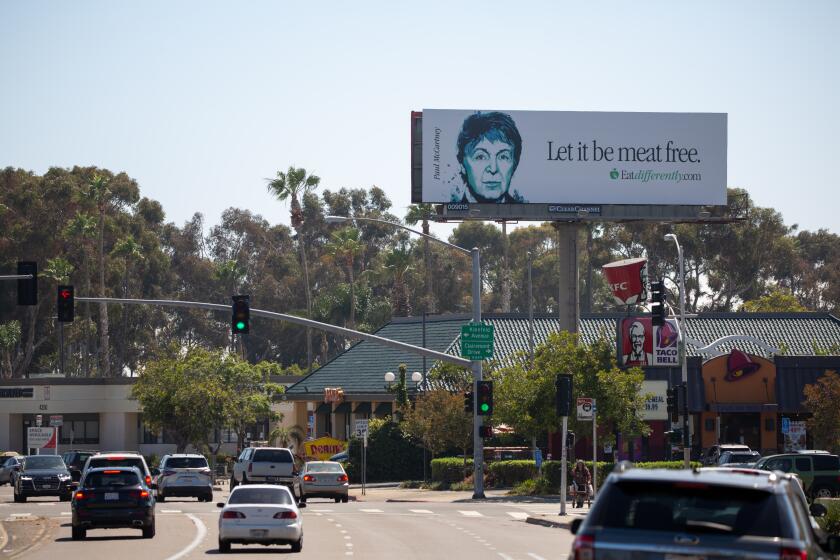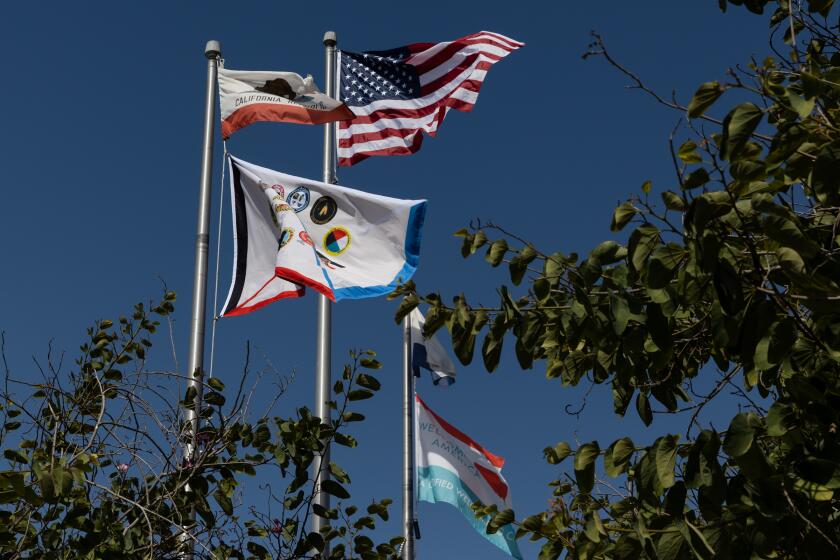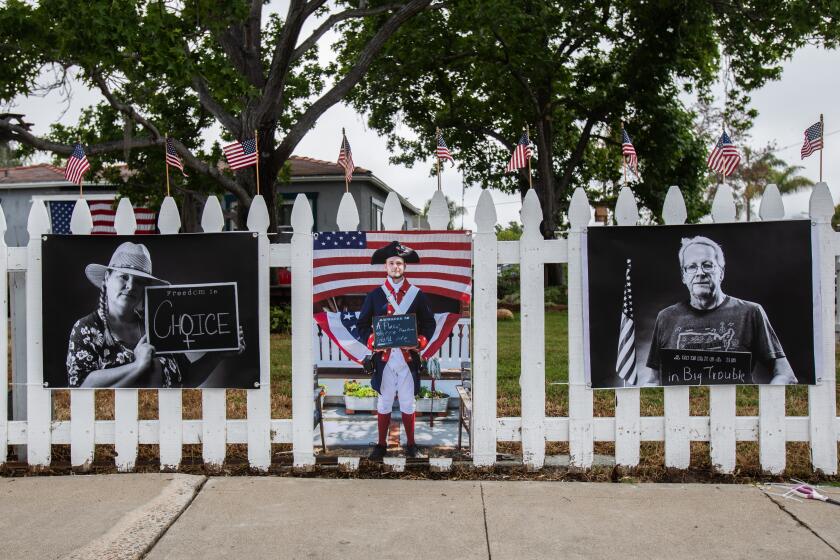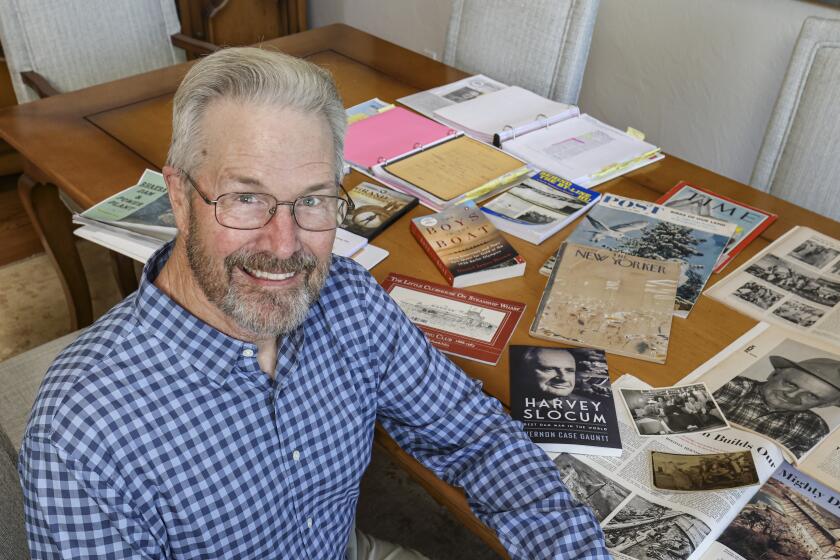Cultural identity rich terrain for novelist Gowda
When she was working on her first novel, “Secret Daughter,” published in 2010, Shilpi Somaya Gowda saw writing as a hobby, a temporary break from her work as a business-development consultant.
Then the book sold more than 1 million copies worldwide and was translated into more than 20 languages, and she had a new career.
Her follow-up, “The Golden Son,” is another tale of cultural identity, this one about Anil Patel, a young doctor with one foot in America and another back home in India. His close childhood friend Leena has fewer options and winds up in an arranged marriage that’s closer to slavery than love.
Born and raised in Toronto by parents who had emigrated from Mumbai, Gowda lives now in San Diego. She will be at Warwick’s at 7:30 p.m. Wednesday and at the Rancho Santa Fe Golf Club at 11:30 a.m. Thursday for a ticketed luncheon.
Q: Your first novel has “daughter” in the title. The new one has “son” in the title. What is it about the parent-child relationship you find compelling as a subject for your books?
A: There was an agent I met with in the process of writing the first novel who had gotten to the phrase “secret daughter” in the text and she started crying. I didn’t have a title at that time and I thought, “Oh, maybe that will be a good one. The publisher is going to change it anyway.” That’s what everybody told me. Then they wound up keeping it.
My second novel, I didn’t have a title nearly the whole time I was working on it. My editor in Canada came to the “golden son” phrase toward the end of the book and said, “What about this?” And I said, “Well, you know, it’s used sarcastically. His sister is sort of making fun of him.” And she said, “That’s OK. It does sort of describe who he is.” I was a little hesitant to do the son and daughter thing because I didn’t want people to think it was a sequel or a series. We’ve had a lot of funny discussions around this, joking that maybe the next one will be “The Crazy Aunt” or “The Clumsy Cousin.”
But your question was more serious about the underlying theme, and I think that is an idea I just keep coming back to. Culture and family — I just think that’s very rich terrain for everything. For how relationships play out. I’m always very interested in exploring the differences between generations and how they pull on each other. How one generation might grow up in the shadow of another or want to break free.
Q: Is this something you’ve wrestled with yourself as a child of immigrants?
A: To an extent. I certainly felt, particularly when I was younger, that there were two separate worlds I had to navigate. There was my parents’ world, and it was largely Indian — Indian culture, Indian values, food, music, dance, community — and there was a whole other world at school. I went to a school with all Caucasian kids because that was the neighborhood we lived in.
It wasn’t the way it is now where there are yoga classes and henna parlors. There was no exoticism or interest in Indian culture. It was all very foreign and, you know, kids don’t want to be different. I was no exception, so I sort of seesawed between those two worlds. And then as I got older and forged my own path, and I think the world around me changed, I could choose my own community and school and friends. Since then, I think I’ve really been able to forge an identity that has both parts of those cultures in it. To me, I don’t feel any conflict anymore.
Q: You have college degrees in economics and business. How did you become a writer?
A: I worked in business for about 10 or 15 years, and I loved it. We moved from San Francisco to Dallas for a job opportunity for my husband, and that gave me the chance to start something new. I wasn’t going to be able to do the same kind of work I was doing in San Francisco, and I was something like seven months pregnant with our second child, so nobody was going to hire me. I thought maybe this is the time to try that thing that had always been niggling in the back of my mind.
I took about 12 months to write the first draft, and then I showed it to a few agents, and somebody wanted to represent me. She thought it could be sold, but even up until the time the book came out I was thinking, “OK, this was a nice diversion into my hobby and now I’ll go back to my business career.” Then the book just took off and became very successful in so many countries around the world. And I had a job to support it and market it and travel to different places. By the time I looked up from that, a few years had passed. I thought if I could do this as a career and not just a hobby, then great.
Q: The new book involved a few restarts in the writing. What was the hardest knot for you to unravel?
A: I think I had the story in my head of the subject matter I wanted to write about, which was the character of Anil growing up in one tradition and having one set of expectations around being the arbiter in his village, and having his own ambitions pulling him away from that.
That’s what I started with, and I wrote the first draft just from Anil’s point of view. He was a single character, sort of a three-year time span. It was very narrow. My agent and my editor just felt it wasn’t broad or rich enough to satisfy what the readers of my first novel had come to expect. They would want something more epic, with more subplots and more points of view.
Leena was initially conceived as very much a secondary character. She only showed up in maybe the last third of the book as a letter writer. But everybody was really intrigued by her story, and in subsequent drafts I finally made her her own character in her own voice. I added subplot, I expanded the time scope. It just grew, is probably the best way to say it.
Q: Leena goes through some very difficult things in this book. What was the hardest part for you in writing her?
A: Any time I write something, I have to live through it a little bit in my head in order to get inside a character and make it feel real. When I started to write her story independently, I started to feel trapped the way she feels trapped. She’s done her best and yet she’s ended up in this situation where there is no way out, there’s no better path, and as an uneducated, rural woman she just doesn’t have very many options.
I’ve always in the back of my head wondered what my life would have been like if my parents hadn’t left India. It would not have been like Leena’s because we were from a city and we were a middle-class, educated family, but to know that someone of my same demographic background, just by virtue of birth, could have such a different life from the one I have — it’s a stark reminder that some of us are lucky to be born where we are or to be able to make our way to a better place. Many people in the world don’t have that option.






